
Residentes de Nogales, Sonora acuden al evento Amigos en la frontera el pasado 16 de agosto de 2025, en el que se celebró a la comunidad transfronteriza. (César Barrón / CALÓ News)
Nogales, Arizona – More than 20 organizations from Mexico and the United States joined forces to hold the first-ever Friends Across Borders event on Saturday. But it was more than an event; it was an act of resistance, support and humanity toward immigrants.
“Friends Across Borders, a celebration of life, culture, resistance and community across borders,” was how the event was described on its flyer, inviting Arizonans and Sonorans to take part in the multi-city gathering.
In Arizona, the events took place that morning at the Consulate General of Mexico in Tucson and at the Museum of Arts in Nogales, Sonora, located over 200 yards from the Dennis DeConcini Port of Entry. It was also held in Agua Prieta, Sonora, according to Gabriela Rodríguez, a member of the Coalición de Derechos Humanos and the Arizona Border Community Coalition.
The event brought together representatives from shelters, civil organizations, human rights advocates, civil society representatives and immigrants — those who have managed to cross the U.S.-Mexico border and those who await the chance to do so in Nogales. Most voices agreed on a common message: the need to treat migration in a dignified and humane manner.
Participating organizations included the Human Rights Coalition, Arizona Immigration Law and Justice, the Arizona Border Community Coalition, various Mexican consulates, the Kino Border Initiative, the Municipal Institute for the Promotion of Culture and the Arts (IMFOCULTA) of Nogales, Sonora, the Samaritans of Tucson and the Border Patrol Victims Network, among others.
According to Rodríguez, the goal of the gatherings was to change the narrative about migration. “It is generally seen as a negative issue, and we want to show that the entire migrant community is powerful and alive,” she said.
On the walls of the Museum of Arts in Nogales, Sonora were approximately 60 paintings with migration themes produced by children who have been at the Casa de la Misericordia. The migrant shelter is located less than four miles from the nearest port of entry.
Inside the museum, attendees sampled the famous pupusas of El Salvador, a symbol of the intersection of cultures. At the same time, the Ojo de Dios folkloric dance group from IMFOCULTA offered a vibrant and colorful performance representing the cultural richness of the region.
Amid smiles, music and food, there was also time for testimony and reflection.

Residentes de Nogales, Sonora acuden al evento Amigos en la frontera el pasado 16 de agosto de 2025, en el que se celebró a la comunidad transfronteriza. (César Barrón / CALÓ News)
“Migrating is human, and laws cannot stop something that is human,” said Daniela Ugaz, a member of the Florence Immigrant and Refugee Rights Project. This southern Arizona-based organization advocates for migrant rights and provides legal resources to those at risk of deportation.
Some migrants present gave their testimony, like Diego León, originally from Ecuador, who recounted part of his journey to reach the Nogales border to request asylum in the United States through the CBP One app. With the arrival of the new administration, this was not possible, he said.
In January, upon President Donald Trump's return to the White House, he ordered the cessation of appointment scheduling with border authorities through the CBP One app, a tool launched by former President Joe Biden to facilitate migrant processing at the border. Since then, the app has evolved to serve as a registry for migrants who choose to self-deport.
"But we will have faith that times will change," said León, thanking the organizations present that care for migrants.
A woman originally from Oaxaca who has been in Nogales, Sonora, for several months also recounted everything she misses about her hometown, which she described as a village. She did not provide her full name out of concern for her privacy.
At the border, she said, she has met wonderful people who have helped her since her arrival. Similar to León, she hasn't been able to cross, but remains in Nogales because her dream must be achieved, she shared.
The event in Nogales, Sonora, was a common cause without borders, with cultural exchanges, a bridge of solidarity for migrants who stayed in Nogales and stories that cross continents. It was the first iteration, but it may become a regular occurrence, organizers said.
The state of Arizona shares just over 370 miles of border with the states of Sonora and Baja California, Mexico, and has more than 22 ports of entry, at least seven of which are located along the southern border crossing. That's why holding a cross-border event like this attracted the attention of so many cities and organizations.
More than 40 events were held in different parts of the U.S.-Mexico and U.S.-Canada borders, with 23 organizations participating, Rodríguez explained. Some of the cities where the event took place in the United States included San Diego, Calexico, Tucson and El Paso, while in Canada it was held in Vancouver.
César Barrón is an independent reporter covering the transnational communities of Ambos Nogales. He has over 20 years of experience covering the Sonoran communities.

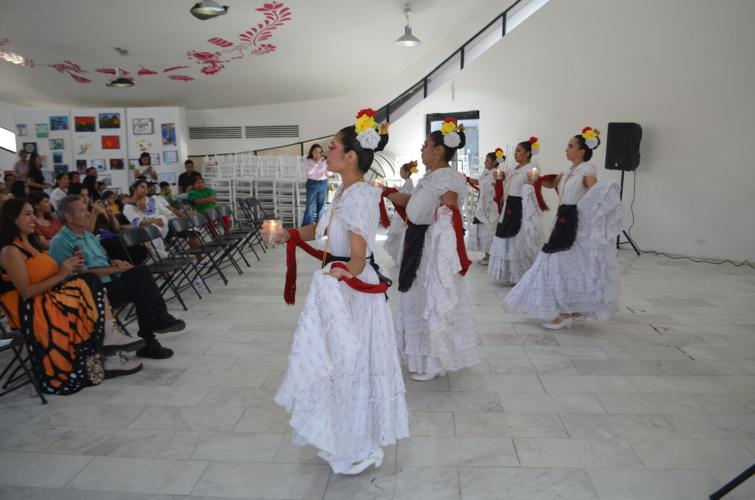
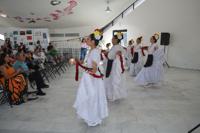
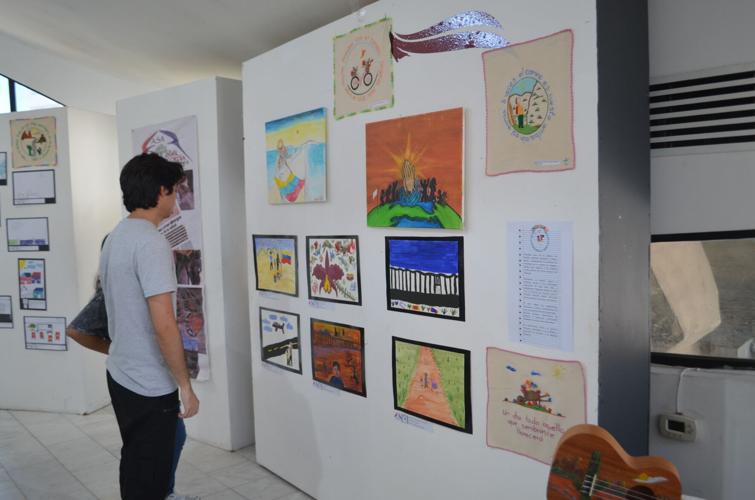
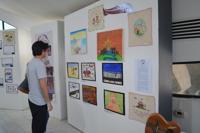



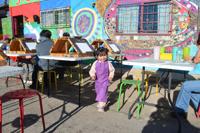

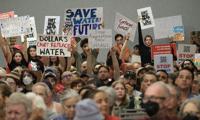


(0) comments
Welcome to the discussion.
Log In
Keep it Clean. Please avoid obscene, vulgar, lewd, racist or sexually-oriented language.
PLEASE TURN OFF YOUR CAPS LOCK.
Don't Threaten. Threats of harming another person will not be tolerated.
Be Truthful. Don't knowingly lie about anyone or anything.
Be Nice. No racism, sexism or any sort of -ism that is degrading to another person.
Be Proactive. Use the 'Report' link on each comment to let us know of abusive posts.
Share with Us. We'd love to hear eyewitness accounts, the history behind an article.